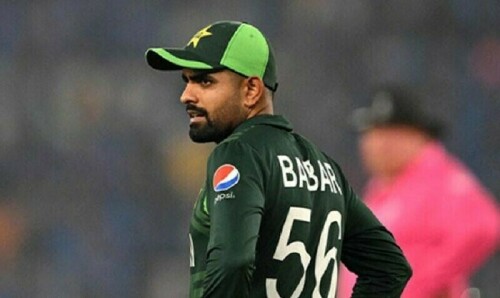DUBAI: Cricket South Africa (CSA) and the Pakistan Cricket Board (PCB) have both come out and clarified that the proposed revamp of the International Cricket Council’s (ICC) administrative structure does not yet enjoy unanimous support for key principles of the plan, as the ICC claimed in a press release on Tuesday.
“The support is subject to the approval of the respective boards of the member countries after which a final decision will be taken at a follow-up ICC Board meeting on Feb 8,” CSA said in a statement.
Similarly, in a press release issued after the ICC Executive Board meeting in Dubai on Jan 28, the PCB said no decision had been taken with regard to proposed changes in the ICC power structure as per the ‘Position Paper’ submitted by the boards of India, Australia and England.
“The PCB clearly stated at the meeting that the guiding principles were subject to PCB Governing Board’s approval. These matters will be placed before the Governing Board and thereafter the PCB will take its position at the next ICC Executive Board meeting,” the PCB release said.
The ICC press release late on Tuesday had claimed that the Executive Board had ‘unanimously supported’ key principles following a huge outcry over earlier proposals that could have seen India, England and Australia take effective control of world cricket.
This happened after South Africa became the first ICC member to object to the initial proposals, followed by the boards from Bangladesh, Sri Lanka and Pakistan, some of whom wanted more time to study the proposals.
Certain modifications were then made to the proposal, including adding South Africa to the new Test Match Fund. CSA has been concerned about poor revenues if the original proposals had been implemented.
But this and other concessions to the other seven members nations of the ICC do not appear to have led to unanimous support for the new plans.
“We will be convening a joint session of our CSA Board and certain key stakeholders as soon as is practically possible to consider the principles,” said CSA president and chairman of the Board Chris Nenzani.
“One of the hallmarks of our new administration has been an absolute adherence to the principles of good corporate governance and we do not intend to deviate from this. Our position will be subject to full consideration by our Board and other stakeholders.
“CSA said no further comments will be made until the CSA Board meeting,” he added.
Meanwhile, a Sri Lankan cricket source said Sri Lanka was supporting South Africa, Pakistan and Bangladesh in opposing the proposals in Dubai to give the “Big Three” nations a greater say in running of the game.
The Sri Lankan source also rejected ICC suggestions from Dubai that there was “unanimous support” for the plans to change the world game’s structure and governance.
“We were surprised by this statement because as far as Sri Lanka is concerned there was no unanimity on this,” the source, who spoke to AFP on condition of anonymity, said in Colombo.
Sri Lanka Cricket (SLC) refused to officially confirm its opposition, saying in a statement only that its president had asked for more discussions.
“SLC President Jayantha Dharmadasa informed the ICC of the need for further discussions on the matter pertaining to the revised position papers with the (ICC) Executive Committee prior to arriving at a decision in this regard,” the statement said.
The Bangladesh Cricket Board (BCB), in the meantime, has formally protested plans to shake up the world game, officials said.
A BCB spokesman said it was strongly opposed to a discussion paper circulated at the ICC meeting in Dubai that proposes a two-tier Test system.
“Bangladesh became the first country to formally protest the controversial two-tier system. We opposed because we don’t want to play in the second tier,” spokesman Jalal Yunus said in Dhaka.
There is also a plan to create two divisions for Test cricket but with England, Australia and India all guaranteed to avoid relegation from the top tier because of their commercial importance.
Yunus said this last plan had been ditched following discussions at the ICC meeting. “The ICC has shelved the controversial plan and definitely it was a major victory for us,” he said.—Agencies














































